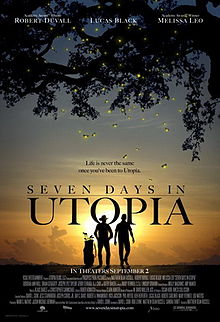
Asking The Right Questions: Educating the Hearts & Minds of our Children
By Dr. Ted Baehr
Note: This is part of our parenting series. For similar articles, click here.
With the flood of mass media of entertainment, parents need help educating the hearts and minds of their children to be media-wise.
According to Cornell University, 9 out of 10 children abandon the values of their parents. According to USA Today, 83% of the youth leave the church, and 80% of the parents are very worried about their children and the mass media of entertainment’s influence on them.
Recently, USA Today noted that 70% of Americans were unable to name the Ten Commandments. In a culture where physical health is a higher priority than spiritual vitality, another recent survey found that more Americans are familiar with the specific ingredients in a McDonald’s hamburger than know the individual commands that comprise the Ten Commandments.
Many Christian parents are concerned about the influence of media violence on their children, but many of those who are concerned don’t know what to do about the problem. The good news is that there are effective ways to teach your children to be media-wise.
Five Keys of Media Wisdom
As the director of the TV Center at City University of New York, I helped develop some of the first media literacy courses in the late 1970s with 60 professors for all over the world. Since then, years of research have produced a very clear understanding of the best way to teach media literacy. Specifically, there are five Keys of media wisdom that will help build the culture-wise family.
- Key 1: Understand the influence of the media on your children. In the wake of the Columbine High School massacre, CBS President Leslie Moonves put it quite bluntly: “Anyone who thinks the media has nothing to do with this is an idiot.” The major medical associations have concluded that there is absolutely no doubt that those who are heavy viewers of violence demonstrate increased acceptance of aggressive attitudes and aggressive behavior. Of course, media is only one part of the problem – a problem that could be summed up with the sage biblical injunction, “Do not be misled: ‘Bad company corrupts good character’” (1 Cor. 15:33). As the results of thousands of studies on youth violence prove, watching media violence causes violence among children. Bad company corrupts good character – whether that bad company is gangs, peer pressure or violent movies, video games and television programs.
- Key 2: Ascertain your children’s susceptibility at each stage of cognitive development. Not only do children see the media differently at each stage of development, but also different children are susceptible to different stimuli. As the research of the National Institute of Mental Health revealed many years ago, some children want to copy media violence, some are susceptible to other media influences, some become afraid, and many become desensitized. Just as an alcoholic would be inordinately tempted by a beer commercial, so certain types of media may tempt or influence your child at his or her specific stage of development.
- Key 3: Teach your children how the media communicates its message. Just as children spend the first 14 years of their lives learning grammar with respect to the written word, they also need to be taught the grammar of twenty-first-century mass media so that they can think critically about the messages being programmed for them.
- Key 4: Help your children know the fundamentals of Christian faith. Children need to be taught the fundamentals of Christian faith so that they can apply their beliefs and moral values to the culture and to the mass media of entertainment. Of course, parents typically have an easier time than teachers with this Key because they can freely discuss their personal beliefs. Yet, even so, it is interesting to note that cultural and media literacy and values education are two of the fastest growing areas in the academic community – a trend most likely due to the fact that educators are beginning to realize that something is amiss.
- Key 5: Help your children learn how to ask the right questions. When children know the right questions to ask, they can arrive at the right answers to the problems presented by the mass media of entertainment. For instance, if the hero in the movie your child is watching wins by murdering and mutilating his victims, will your children be able to question this hero’s behavior, no matter how likable that character may be?
Ten Media-Wise Questions for the Culture-Wise Family
Decades of research and evidence clearly shows that the mass media of entertainment creates the culture that shapes the hearts and minds of the average person, especially children and teenagers. That culture also elects the politicians who write the legislation, appoint the judges and hire the teachers that affect families and children everywhere.
To serve and protect you and your family, including your children and grandchildren, MOVIEGUIDE®: The Family Guide to Movies, Entertainment and Culture offers the following questions you can apply to any movie, video or television program, to make you and your family more media wise and more culture wise, so they may choose the good and reject the bad:
- What kind of role models, positive and negative, are the main characters?
- Who is the hero? And, who is the villain? And, how do their character traits agree with a biblical hero or villain?
- Do the moral statements and themes agree with a biblical worldview?
- Are real consequences to sin exposed and rebuked?
- How are relationships and love portrayed?
- How are Christians, religion, the church, the Bible, and God portrayed?
- Does the language honor God and people?
- If violence is included, how is it presented?
- If physical romantic activity is included, how is it presented?
- How appropriate is this material for my family and me?
“Give your servant a discerning heart to govern your people and to distinguish between right and wrong.” – 1 Kings 3:9
Educating the Heart
Theodore Roosevelt said that if we educate a man’s mind but not his heart, we will get an educated barbarian. Cultural and media wisdom involves educating the heart so that it will make the right decisions.
So, how can you protect the eyes of innocence of your children and grandchildren? How can you redeem the culture?
- Teach your family to be CULTURE-WISE.
- Become informed — movieguide.org.
- Spend your entertainment dollars wisely.
- Support the Christian Film & Television Commission®.
Editor’s Note: These articles are adapted from Dr. Ted Baehr’s THE CULTURE WISE FAMILY and THE MEDIA WISE FAMILY books. You can buy them from www.movieguide.org or on Amazon.
Questions or comments? Please write to us here.


 – Content:
– Content: 
